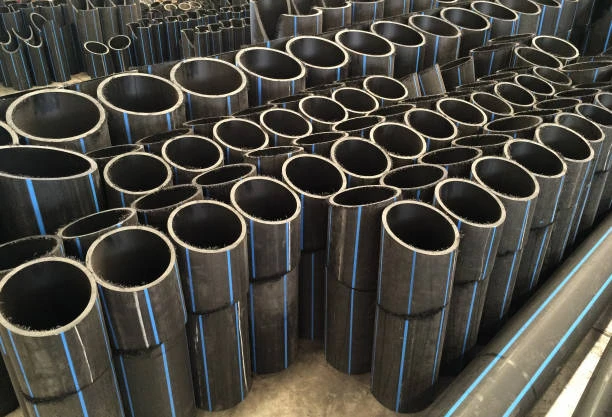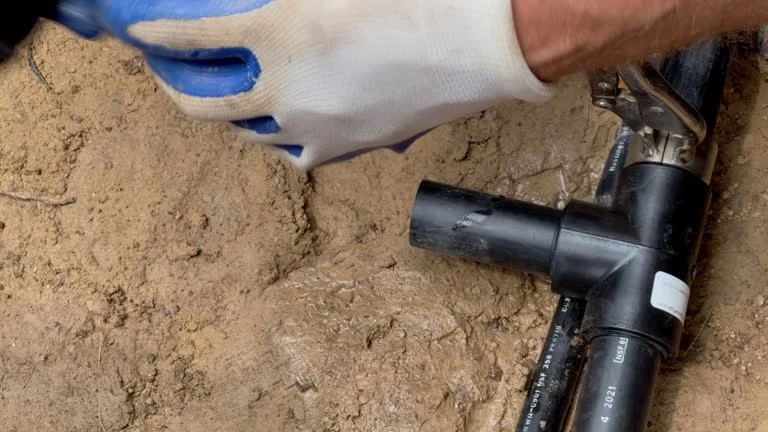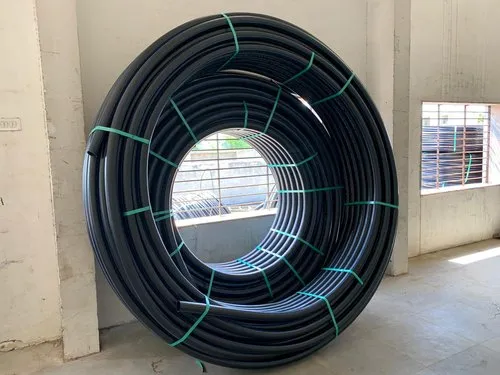Subtitle: Exploring the Crucial Role of Plastic Pipes in South Africa’s Infrastructure Development
Plastic pipes play a pivotal role in South Africa’s infrastructure, supporting a wide range of applications from water distribution to sewage systems and beyond. Over the past few decades, plastic pipes have become a go-to choice for developers, municipalities, and industries due to their durability, cost-effectiveness, and versatility. This article explores the value and role of plastic pipes in South Africa, focusing on how they contribute to the nation’s growth, sustainability, and economic development.
Introduction: Understanding the Growing Importance of Plastic Pipes in South Africa
South Africa is a country rich in natural resources but also faces significant infrastructure challenges, especially regarding water, sanitation, and the management of wastewater. With an increasing population, rapid urbanization, and the growing need for sustainable and efficient infrastructure, the demand for reliable, long-lasting, and affordable piping solutions has never been higher.
Plastic pipes, particularly those made from materials like PVC (polyvinyl chloride), HDPE (high-density polyethylene), and PE (polyethylene), have emerged as essential components in addressing these challenges. Their role is critical in various sectors, from urban development to agriculture, and they contribute significantly to the country’s economic growth by improving access to clean water, enhancing sanitation systems, and supporting sustainable practices in construction and industry.
The Role of Plastic Pipes in Water Supply Systems
Water supply remains one of South Africa’s most pressing issues. With periods of drought, especially in the Western Cape, and rapidly growing urban populations, reliable access to clean water is vital. Plastic pipes are a fundamental solution to improving water distribution systems throughout the country. Their role is crucial in several areas:
1. Efficient and Safe Water Transport
Plastic pipes are lightweight, corrosion-resistant, and easy to handle during installation, making them an ideal choice for water transport. Unlike metal pipes, which can corrode over time, plastic pipes maintain their structural integrity even under harsh conditions, ensuring the safe transport of water. This is especially important in South Africa’s climate, where extreme weather conditions and water quality issues can undermine traditional piping materials.
2. Cost-Effectiveness
Plastic pipes are typically more affordable than alternatives like steel or concrete. This affordability allows municipalities and businesses to complete large-scale water distribution projects within budget, facilitating the expansion of water networks in underserved or rural areas. Their cost-effectiveness makes them a viable solution for improving access to clean water for all South Africans, especially in low-income communities.
3. Durability and Longevity
Plastic pipes are known for their long lifespan. When properly installed, they can last for decades without requiring frequent maintenance or replacement. This makes plastic pipes a sound investment for long-term water supply infrastructure, reducing the need for costly repairs and replacements down the line.
Plastic Pipes and Wastewater Management
South Africa’s rapidly growing urban centers also face significant challenges in wastewater management. Inefficient or outdated sewer systems can lead to health hazards, pollution, and environmental degradation. Plastic pipes play a major role in improving the country’s sewage and stormwater systems in several ways:
1. Reliable Sewerage Systems
Plastic pipes are increasingly being used in sewerage networks across the country. Their resistance to corrosion and scaling makes them ideal for transporting wastewater. PVC pipes, for example, are commonly used for both gravity-fed sewer systems and pressure sewage lines. Their ability to withstand harsh chemicals and the pressure of wastewater flow makes them the preferred material for modernizing sewer systems in urban and peri-urban areas.
2. Stormwater Management
Plastic pipes are essential for stormwater drainage systems, which help manage heavy rainfall and prevent flooding. South Africa’s infrastructure has struggled with stormwater management in many areas, particularly in informal settlements and growing cities. The introduction of plastic pipes has enabled more efficient drainage, reducing the risk of flooding and contamination of freshwater sources. In coastal and flood-prone areas, HDPE pipes are widely used due to their ability to resist both environmental wear and water-related stress.
Agricultural Applications: Supporting Sustainable Farming Practices
Agriculture remains one of South Africa’s most important sectors, contributing significantly to employment and food production. Plastic pipes play a crucial role in irrigation systems, which are essential for supporting crop growth and ensuring food security, particularly in arid regions.
1. Irrigation Systems
Water scarcity is a major issue for farmers, especially in regions where droughts are frequent. Plastic pipes, particularly those made from PE, are ideal for use in drip irrigation systems. These pipes efficiently transport water directly to plant roots, ensuring that crops receive a consistent and controlled water supply. This reduces water waste, increases crop yields, and improves overall agricultural productivity.
2. Efficient Water Distribution
Plastic pipes are used in a variety of agricultural settings to distribute water for both irrigation and livestock needs. Their flexibility and resistance to UV radiation make them suitable for outdoor use, where they can withstand harsh sunlight without degrading. Additionally, plastic pipes are easier to install and maintain compared to traditional materials, making them an affordable and practical solution for farmers across South Africa.

The Environmental Benefits of Plastic Pipes
One of the most significant advantages of plastic pipes is their environmental benefits. As South Africa faces increasing pressure to adopt sustainable and eco-friendly solutions, plastic pipes stand out due to their reduced environmental impact in several key areas:
1. Lower Carbon Footprint
The production and transportation of plastic pipes require less energy than materials like steel or concrete. This results in a lower carbon footprint, contributing to South Africa’s broader environmental goals. The light weight of plastic pipes also makes them easier to transport, reducing fuel consumption and lowering emissions associated with their delivery.
2. Recyclability
Many plastic pipes, particularly those made from PVC, can be recycled and reused at the end of their lifespan. This reduces the environmental burden of disposal and encourages circular economy practices. As the South African government places greater emphasis on recycling and reducing waste, plastic pipes offer a sustainable solution that aligns with these environmental policies.
3. Water Conservation
The use of plastic pipes in irrigation systems directly supports water conservation efforts. By reducing the amount of water lost through leaks or evaporation, plastic pipes help ensure that water is used efficiently. This is particularly important in a country like South Africa, where water resources are finite, and every drop counts.
The Economic Value of Plastic Pipes
Beyond their environmental and practical benefits, plastic pipes also provide significant economic value to South Africa. The growth of the plastic pipe industry contributes to job creation, local manufacturing, and the development of supply chains that support the broader construction and infrastructure sectors.
1. Job Creation
The production and installation of plastic pipes require a skilled workforce. As the demand for plastic pipes grows, so does the need for labor in manufacturing plants, distribution, and installation. This supports local economies by creating jobs in both urban and rural areas.
2. Local Manufacturing and Economic Growth
South Africa’s plastic pipe manufacturers contribute significantly to the local economy by producing high-quality pipes that meet both local and international standards. The local production of plastic pipes reduces reliance on imported materials, helping to boost the national economy and improve trade balances.
3. Supporting the Construction Industry
Plastic pipes are integral to the broader construction industry, which is one of South Africa’s key drivers of economic growth. The demand for new housing, commercial buildings, and infrastructure development drives the need for plastic piping systems. As cities expand and new infrastructure projects are initiated, the role of plastic pipes becomes increasingly important.
Challenges and Future Outlook
While plastic pipes offer numerous benefits, the industry faces challenges, including rising raw material costs, supply chain disruptions, and competition from alternative piping materials. However, the outlook for plastic pipes in South Africa remains strong, particularly with ongoing investments in water infrastructure and sustainable development projects.
The future of plastic pipes in South Africa looks bright, driven by increasing urbanization, infrastructure development, and the need for sustainable solutions. As the country continues to modernize and address its water and sanitation challenges, plastic pipes will remain at the heart of its growth and development.
Conclusion
Plastic pipes have proven to be an invaluable asset to South Africa’s infrastructure, offering reliable, cost-effective, and sustainable solutions for water, wastewater, and agricultural applications. Their role in supporting economic growth, environmental sustainability, and improved quality of life makes them a crucial component of the country’s development. As demand for plastic pipes continues to rise, they will remain central to South Africa’s efforts to overcome infrastructure challenges and build a more resilient future.
Frequently Asked Questions (FAQs)
- What materials are commonly used to make plastic pipes in South Africa?
The most common materials used for plastic pipes in South Africa are PVC (polyvinyl chloride), PE (polyethylene), and HDPE (high-density polyethylene). These materials are chosen for their durability, resistance to corrosion, and cost-effectiveness. - How do plastic pipes help with water conservation in South Africa?
Plastic pipes help conserve water by reducing leaks and evaporation in water distribution and irrigation systems. Their efficient design ensures that more water reaches its intended destination, especially in areas affected by water scarcity. - What are the environmental benefits of using plastic pipes in South Africa?
Plastic pipes have a lower carbon footprint than metal or concrete alternatives due to their lighter weight and energy-efficient production process. Additionally, many plastic pipes are recyclable, contributing to South Africa’s sustainability goals. - Why are plastic pipes ideal for irrigation in South Africa?
Plastic pipes, especially those made from PE, are ideal for irrigation because they are flexible, resistant to UV degradation, and easy to install. These qualities make them well-suited for agricultural applications in arid regions. - How do plastic pipes contribute to economic growth in South Africa?
Plastic pipes contribute to economic growth by supporting local manufacturing, creating jobs, and boosting the construction industry. As demand for infrastructure and housing grows, so does the need for reliable piping systems.


















